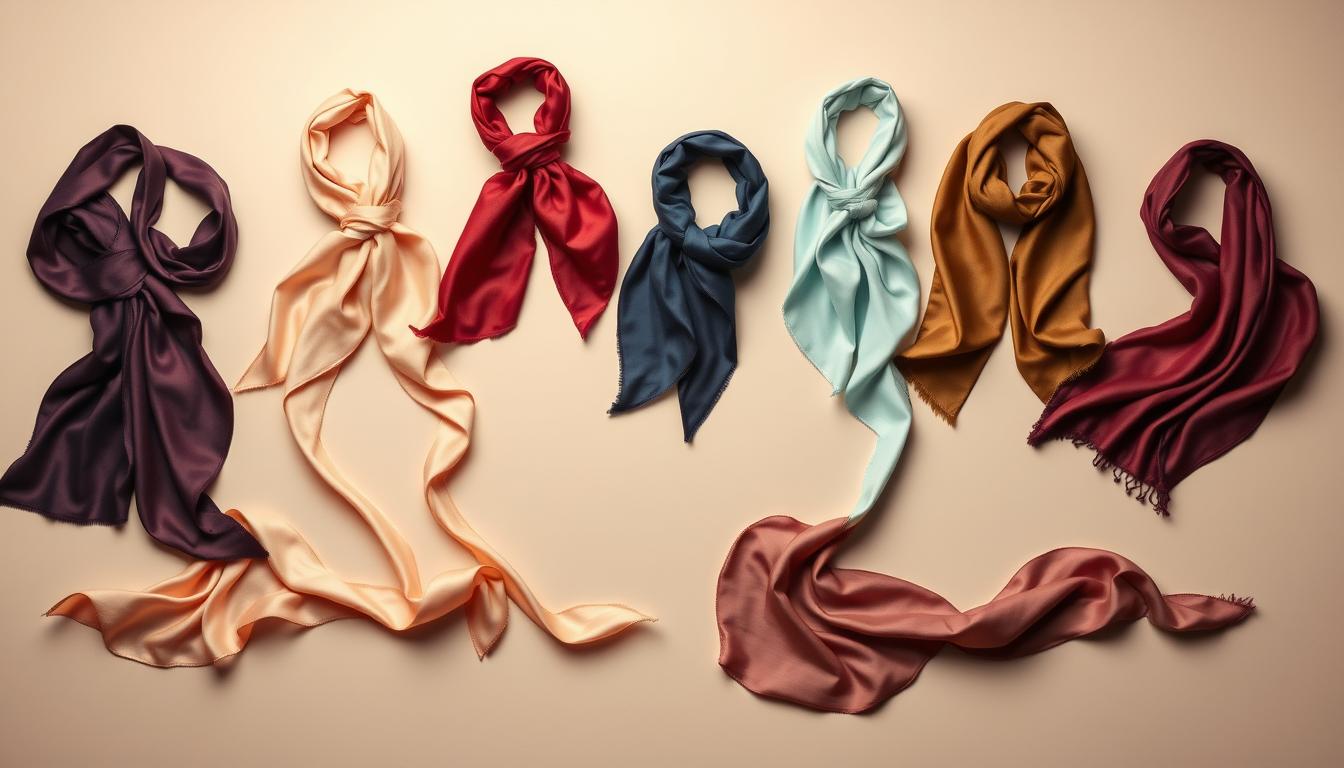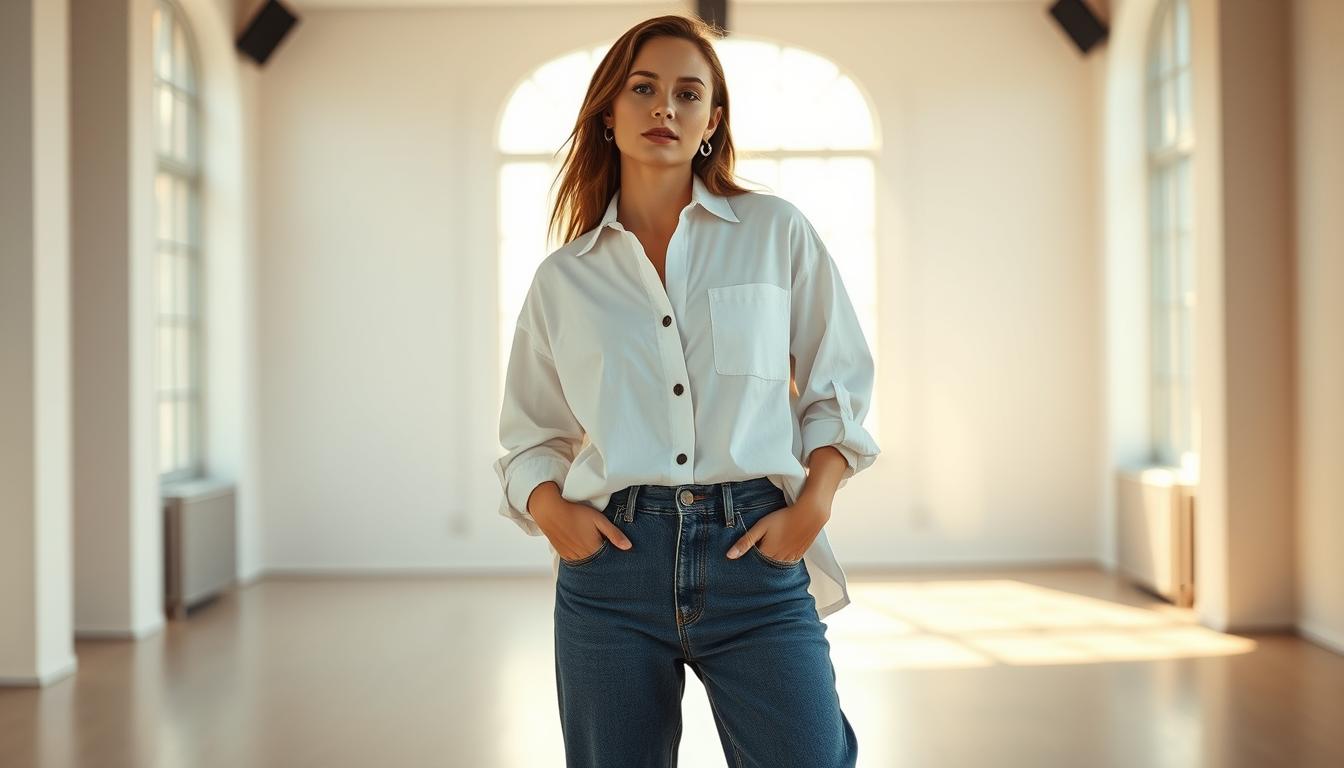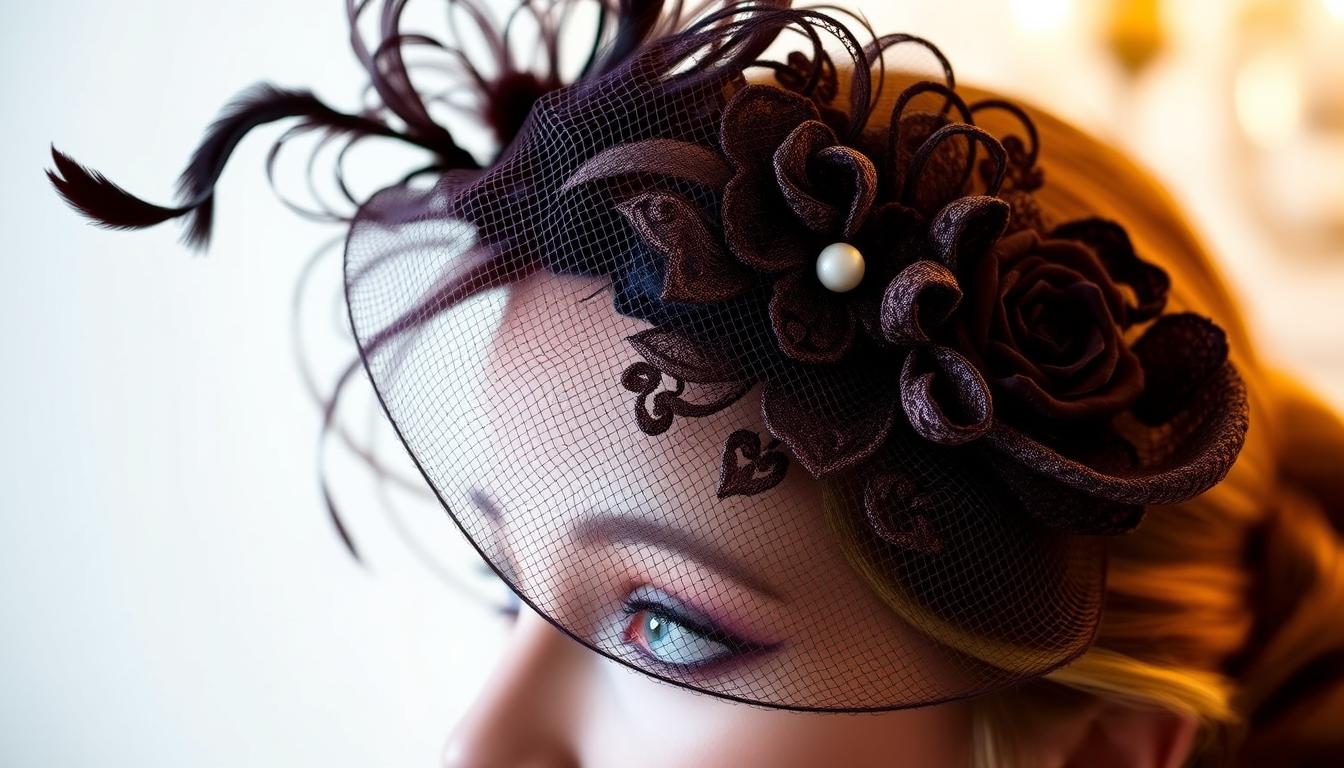Learning to wear a watch is more than just putting it on. It’s about showing off your style and paying attention to details. It turns a simple watch into a statement piece.
Watch wearing tips are not just about looking good. They help you look polished and professional. The right watch can make any outfit better, whether it’s for work or a weekend.
Every watch has its own story. How you wear it shows your sense of style and function. These tips will help you pick the right watch and match it with your outfits.
For those who value style and precision, a watch is more than an accessory. It shows your personal style and sophistication. Wearing a watch correctly can change your whole look and make a strong impression.
Key Takeaways
- A watch is a critical accessory that reflects personal style
- Proper watch placement matters for comfort and appearance
- Different occasions require different watch styling approaches
- Watch size and fit are key for a polished look
- Material and design should match your personal style
Understanding Watch Basics and Anatomy
Getting into watches means knowing their parts and how they work. Our guide will show you how to wear watches right and feel sure about it.
Watches are more than just telling time. They’re detailed tools that show off style and function.
Essential Watch Components
Every watch has key parts that make it work:
- Case: Keeps the movement safe
- Dial: Shows the time
- Crown: For setting time and winding mechanical watches
- Crystal: Protects the dial
- Hands: Tell you the time
Different Watch Styles and Their Purpose
Watch styles vary for different needs and tastes:
- Dress Watches: Simple and fancy, great for formal events
- Dive Watches: Strong and water-proof for swimming
- Sport Watches: Tough with extra features like chronographs
- Smartwatches: High-tech with lots of functions
Watch Movement Types
Knowing about watch movements is key. There are three main types:
- Quartz: Runs on battery, very accurate
- Mechanical: Hand-wound, shows traditional skill
- Automatic: Winds itself with your wrist movement
Each movement has its own special traits. They affect how a watch works, needs care, and feels to wear.
Choosing the Right Wrist for Your Watch
Choosing the right wrist for your watch is more than just a personal choice. It involves considering several key factors. Most watch lovers and style experts say to wear your watch on your non-dominant hand. This is for practical reasons.
Most people wear their watches on their left wrist. This tradition comes from practical needs:
- It protects the watch from damage during activities with your dominant hand.
- It makes it easier to check the time with your main hand.
- It helps avoid interference with daily tasks.
For left-handed people, the rules are a bit different. Many prefer wearing watches on their right wrist for comfort and function. The goal is to find a spot that feels natural and comfortable.
| Wrist Type | Recommended Watch Placement | Comfort Level |
|---|---|---|
| Right-handed People | Left Wrist | High |
| Left-handed People | Right Wrist | High |
Watch placement also shows your personal style. Some fashion lovers choose to wear their watches on their dominant hand. It’s a bold statement. The key is to find a spot that feels right and matches your style.
How to Wear a Watch Properly: Essential Guidelines
Learning how to wear a watch is more than just putting it on your wrist. It’s about style and comfort all day long. Our tips will guide you through the world of watch fashion with ease and elegance.
Getting the watch right on your wrist is an art. It’s about feeling good, being useful, and showing your style. We’ll share the key steps to wear your watch like a pro.
Correct Watch Position on Wrist
The best spot for your watch is based on a few simple rules:
- Put the watch just above the wrist bone
- Make sure it fits snug but doesn’t move too much
- Leave some room for your wrist to move
Proper Watch Fit and Comfort
Finding the right fit is key for both looking good and feeling comfortable. Here’s how to check if your watch fits right:
| Fit Indicator | Ideal Measurement | What to Look For |
|---|---|---|
| Strap Tightness | 1 finger between wrist and band | Snug but not too tight |
| Watch Movement | Minimal sliding | Stays put during daily activities |
| Comfort Level | No pinching or pressure | Feels natural all day |
Watch Face Orientation
The right orientation depends on what you like and what’s practical. Here’s what’s traditionally recommended:
- Dress watches: Face slightly angled for easy reading
- Sports watches: Positioned for quick glance during activities
- Professional settings: Subtle and understated positioning
These are just guidelines. Your comfort and style should always come first. Try different ways to see what works best for you.
Watch Size Selection Based on Wrist Dimensions
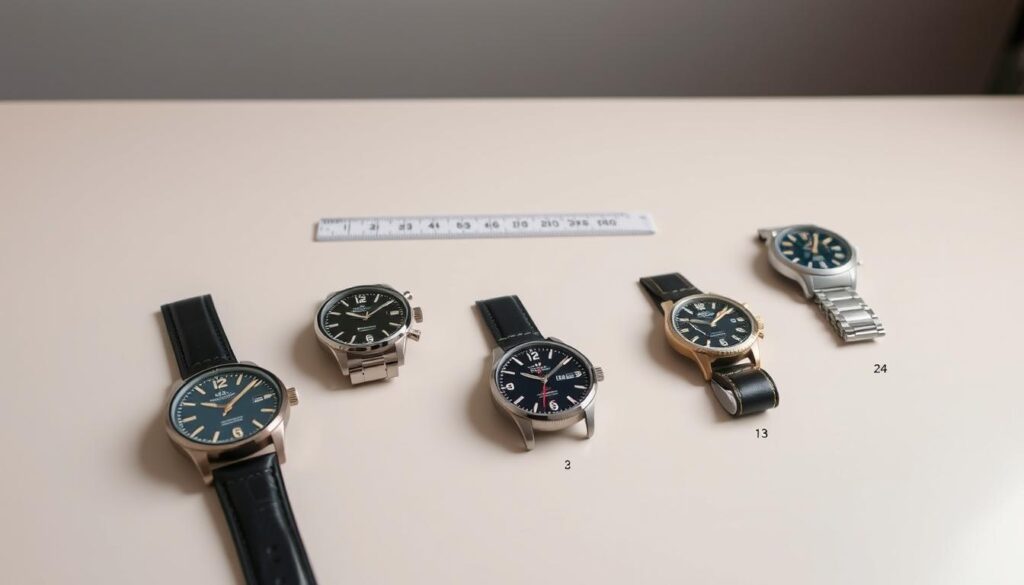
Choosing the right watch size is key. Your wrist size is important for finding a watch that looks good and feels right.
To find the perfect watch, start by measuring your wrist. Use a flexible tape to get your wrist’s circumference. This helps you pick a watch that fits your body well.
- Measure your wrist circumference accurately
- Consider case diameter relative to wrist size
- Evaluate lug-to-lug distance for proper fit
Watch wearing tips offer guidelines for different wrist sizes:
| Wrist Size | Recommended Case Diameter | Style Recommendation |
|---|---|---|
| Small (5.5-6.5 inches) | 34-40mm | Minimalist, slim designs |
| Medium (6.5-7.5 inches) | 40-42mm | Classic, versatile styles |
| Large (7.5-8.5 inches) | 44-46mm | Bold, statement pieces |
Pro tip: Always choose comfort and balance when picking a watch. A watch that fits well boosts your look and confidence.
Watch wearing is an art. The right size can turn a simple watch into a personal style statement. It shows your taste and personality.
Matching Your Watch with Different Outfits
Learning how to wear watches is more than just telling time. Your watch can make or break your outfit. It’s about matching the right watch with your style and the occasion.
Choosing the right watch can take your look from basic to amazing. We’ll show you how to pick the perfect watch for any outfit. This way, you’ll always look stylish.
Formal Wear Watch Selection
For formal events, your watch should be classy and elegant. Here are some tips for choosing a formal watch:
- Go for slim, simple watches with leather straps
- Stick to classic colors like black, brown, or silver
- Look for watches with simple designs on the dial
- Make sure the watch goes well with your suit or evening wear
Casual Watch Styling
Casual settings let you get creative with your watch. Here’s how to style your watch for relaxed times:
- Try out colorful watch bands
- Look for sporty chronograph styles
- Play with metal and leather straps
- Choose watches that show off your personality
Sports Watch Combinations
For sports, you need a watch that’s both functional and stylish. Here’s what to look for in a sports watch:
- Find watches that are water-resistant
- Choose lightweight materials
- Opt for watches with digital or big numeric displays
- Go for silicone or rubber straps for comfort
The best watch is one that shows off your style, no matter the occasion.
Watch Strap Materials and Their Appropriate Uses
Choosing the right watch strap is key for both style and function. Your watch styling advice begins with knowing the unique traits of different strap materials. Each material adds its own flair and performance to your wristwatch.
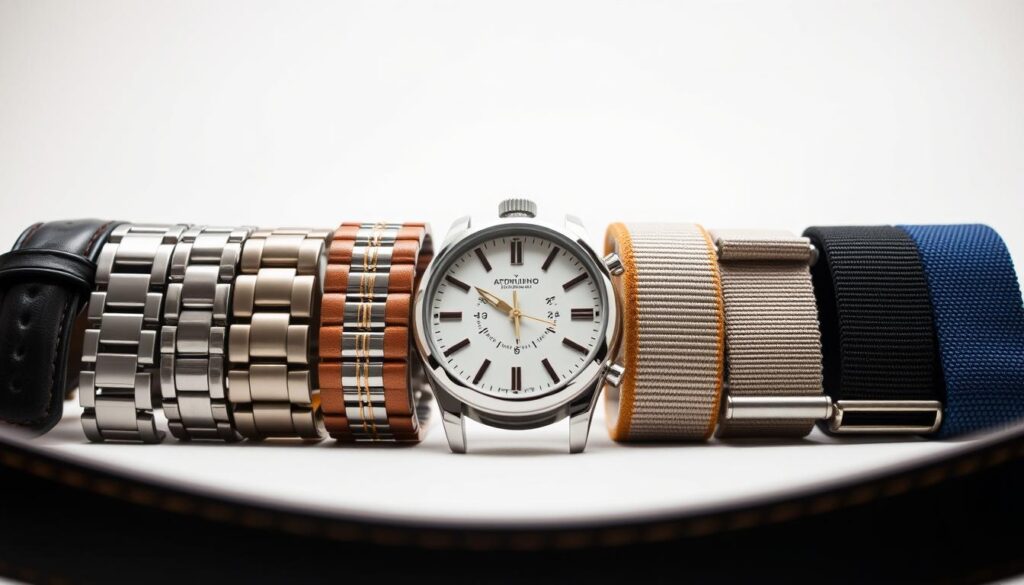
Let’s dive into the most common watch strap materials and their best uses:
- Leather Straps: Great for formal and business events, leather brings classic elegance and sophistication
- Metal Bracelets: Perfect for professional settings and dressy occasions
- Rubber Straps: Ideal for sports and outdoor activities
- NATO Straps: A versatile choice for casual and athletic wear
Watch lovers understand that strap choice is more than just looks. The right material boosts comfort, durability, and watch performance.
| Strap Material | Best Used For | Durability |
|---|---|---|
| Leather | Formal Events | Medium |
| Stainless Steel | Professional Settings | High |
| Rubber | Sports/Active Wear | Very High |
| Canvas/NATO | Casual Environments | Medium-High |
Watch styling tip: Think about your lifestyle, clothes, and usual activities when picking a strap. The right strap can make your watch stand out.
Time-Telling Etiquette in Professional Settings
Wearing a watch is more than just a fashion statement. In work settings, it sends a message about your awareness of the workplace and social rules.
Choosing the right watch for work involves thinking about the situation. Different work places need different ways of showing time.
Business Meeting Protocol
In big meetings, your watch should be low-key. It should not take away from the focus on work. Here are some tips:
- Keep your watch on the inside of your wrist for quick glances
- Don’t keep looking at the time during talks
- Go for simple watches in the office
Social Situations Guidelines
At social events, how you wear your watch matters. Here’s what to know:
| Event Type | Recommended Watch Style | Timing Etiquette |
|---|---|---|
| Networking Events | Classic, understated timepiece | Minimal time checking |
| Client Dinners | Elegant dress watch | Discretion is key |
| Conference Presentations | Professional, simple design | Avoid visible time monitoring |
Your watch shows who you are at work. Choose wisely, wear confidently.
Maintaining Your Watch While Wearing
Keeping your watch safe is key when learning how to wear one. Good care keeps your watch looking new and working well for years.
Start with daily care tips for your watch. It faces many challenges that can harm its look and function.
- Avoid extreme temperatures that can damage internal mechanisms
- Keep your watch away from strong magnetic fields
- Clean the watch regularly with a soft, dry cloth
- Remove watch during high-impact activities
Water resistance doesn’t mean underwater invincibility. Always check your watch’s water resistance before getting it wet. Most dress watches aren’t made for swimming or diving.
Mechanical watches need extra care. Wind them gently at the same time each day, usually in the morning. This keeps them running well. Digital and quartz watches need less care but should be handled carefully too.
- Store watches in a cool, dry place
- Use a watch box or soft pouch for protection
- Service mechanical watches every 3-5 years
Getting your watch serviced regularly is a smart move. It catches problems early and keeps your watch in top shape.
Seasonal Watch Wearing Considerations
Watches are more than just timekeepers. They’re fashion statements that need special care all year. Our guide helps you wear watches correctly in any weather.
As temperatures change, your watch needs different care. Knowing how to protect and style it can make it last longer and look better.
Summer Watch Wearing Tips
- Choose water-resistant watches for beach and pool activities
- Select breathable strap materials like:
- Perforated leather
- Nylon NATO straps
- Rubber or silicone bands
- Avoid direct sunlight to prevent dial discoloration
- Clean your watch often to remove salt, sand, and sweat
Winter Watch Care Strategies
Winter needs special care for your watch. Protect it from extreme cold and moisture with these tips.
| Winter Watch Consideration | Recommended Action |
|---|---|
| Material Selection | Stainless steel or ceramic watches |
| Strap Choice | Leather or metal with moisture-resistant properties |
| Temperature Protection | Avoid rapid temperature changes |
| Storage | Keep in temperature-controlled environment |
Adapting your watch guide for different seasons keeps it stylish and functional all year.
Multiple Watch Wearing Guidelines
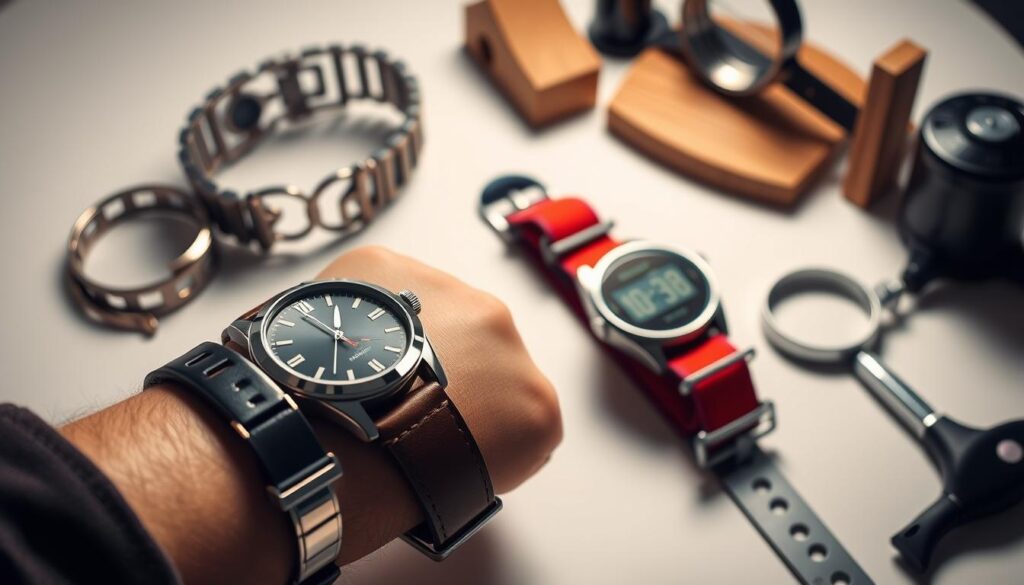
Watch lovers know that sometimes, one watch just isn’t enough. Our advice goes beyond wearing just one watch. We explore how to wear multiple watches with style and confidence.
Wearing multiple watches needs careful planning. Not all watches look good together. You don’t want them to clash.
- Choose watches with complementary design aesthetics
- Consider different watch sizes and dial configurations
- Balance metal tones and strap materials
- Respect professional dress codes
Layering watches is more than just stacking them. Professional watch collectors often use multiple watches for specific purposes. They might track different time zones, match their outfits, or show off their collections.
| Watch Category | Pairing Strategy | Best Use |
|---|---|---|
| Dress Watches | Minimal, elegant combinations | Formal events |
| Sport Watches | Functional, rugged pairings | Athletic activities |
| Smart Watches | Tech-focused layering | Professional settings |
When trying out multiple watch styles, remember to keep it simple. Your watch styling should show your personality without overwhelming your look.
Watch Wearing for Different Occasions
Learning how to pick the right watch for each event is key. Your watch choice should match the occasion, keeping you stylish and fitting in.
Finding the right watch can seem hard. But, we’ll guide you through the basics for different social events.
Formal Events
At formal events, your watch is a big part of your look. Look for watches with these features:
- Slim, elegant watch designs
- Metallic or leather straps in neutral colors
- Minimalist watch faces
- Classic mechanical or quartz movements
Casual Gatherings
For casual events, you can get creative with your watch. It’s a chance to show your style while staying comfortable.
| Occasion | Recommended Watch Style |
|---|---|
| Weekend Brunch | Relaxed leather strap watch |
| Coffee Meet-up | Vintage-inspired timepiece |
| Night Out | Bold, statement watch |
Sports Activities
For sports, you need a watch that’s tough. Here’s what to look for:
- Choose watches with shock resistance
- Select water-resistant models
- Opt for lightweight materials
- Prioritize durability over aesthetics
Pro tip: Always match your watch to the specific activity to ensure both functionality and style.
Common Watch Wearing Mistakes to Avoid
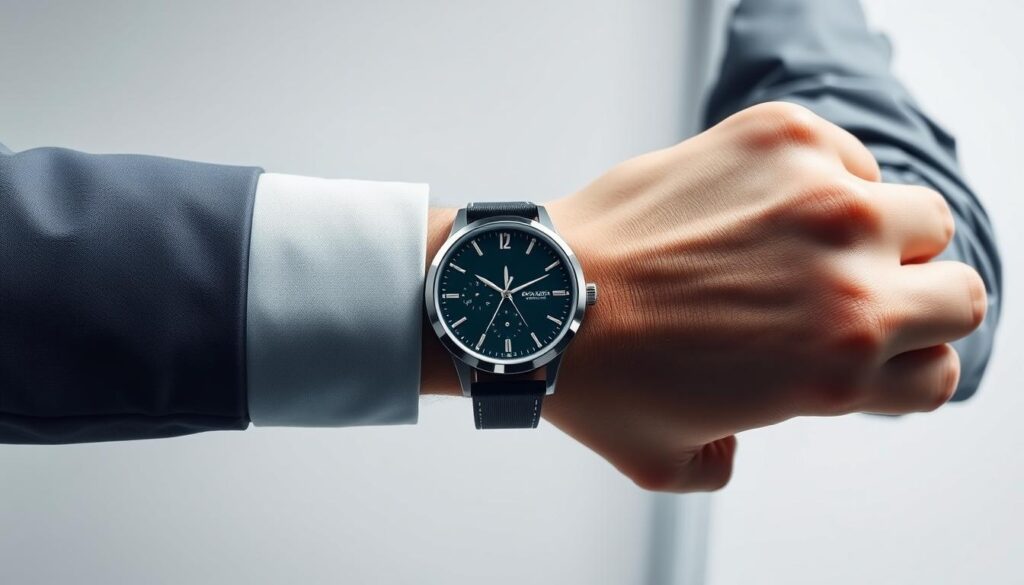
Learning how to wear a watch is more than just putting it on. Even those who know fashion well can make mistakes. These errors can affect both how the watch looks and how it works.
There are key mistakes to watch out for when it comes to wearing a watch:
- Choosing an incorrectly sized watch that overwhelms or underwhelms your wrist
- Wearing inappropriate watches for specific occasions
- Misaligning watch metals with other accessories
- Positioning the watch incorrectly on your wrist
Watch size is very important. A watch that’s too big can look off-balance, and one that’s too small can look wrong. Stylists say to pick a watch that’s about the same size as your wrist.
It’s also key to choose the right watch for the event. A dive watch doesn’t belong at fancy events, and a fancy watch isn’t right for sports. Knowing when to wear what watch shows you’re paying attention to details.
Matching the metal of your watch with other jewelry is another area where mistakes can happen. If your watch and belt buckle don’t match, it can look like you didn’t think it through. Mixing metals like silver and gold can also mess up your look.
How you wear your watch is important too. It should sit right on your wrist, not move too much or feel tight. Getting this right can make your watch look better and feel more comfortable.
Special Considerations for Smart Watches
Smartwatches have changed how we wear watches. They mix tech with style, posing new challenges. We’ll look at how to wear these digital friends with your fashion.
When wearing smartwatches, keep these points in mind:
- Comfort and ergonomic fit on your wrist
- Balancing technology with personal style
- Adapting to different social and professional environments
Our guide suggests placing your smartwatch a bit above the wrist bone. This spot makes the screen easy to see and keeps your wrist comfy all day. Smartwatches need special care because of their tech.
Smartwatch tips include:
- Choose adjustable bands for maximum comfort
- Select watch faces that complement your personal aesthetic
- Customize notifications to maintain professional etiquette
- Regularly clean and maintain your device
Smartwatch fans can turn their device into a stylish accessory. By picking the right designs, it looks great in both casual and formal settings.
Watch Storage When Not Wearing
Keeping your watches safe is key. Watch styling advice isn’t just for wearing them. It’s also about keeping them safe when not on your wrist. The right storage keeps your watches looking great and lasting longer.
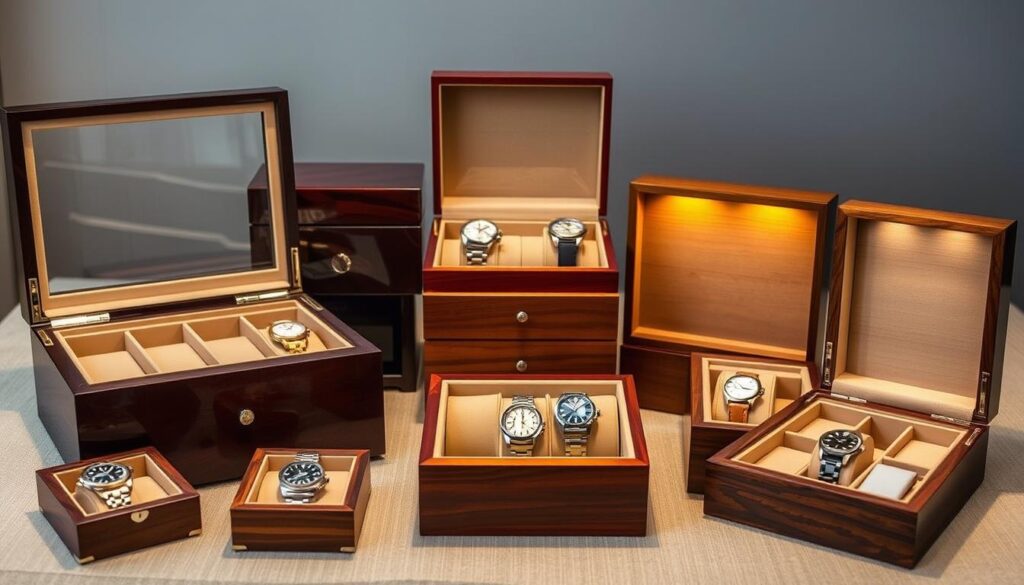
Looking after your watches between wearings is important. The type of watch you have affects how you store it. This includes the material, how complex it is, and how often you wear it.
Daily Storage Essentials
Here are some must-know tips for daily watch care:
- Use dedicated watch stands or trays
- Keep watches away from direct sunlight
- Avoid humid environments
- Store in a dust-free area
Long-Term Storage Solutions
For watches that need to be stored for a long time, you need special care. Here’s a detailed guide to keep your watches in top shape:
| Storage Method | Best For | Key Considerations |
|---|---|---|
| Watch Winders | Automatic Watches | Maintains movement mechanism |
| Humidity-Controlled Boxes | Vintage or Delicate Watches | Prevents moisture damage |
| Soft-Lined Cases | Leather and Metal Watches | Prevents scratches |
Pro tip: Always store watches in their original boxes or specialized watch cases when not in regular rotation.
By following these tips, your watches will stay in great shape. They’ll be ready to add to your style whenever you want.
Conclusion
Our journey through wrist watch fashion has shown us how to wear a timepiece stylishly. We learned about watch anatomy and picking the right accessory for any event. This journey has taken us beyond just telling time.
Wearing a watch is more than just a practical choice. It’s a way to express your style and class. The right watch can make your outfit better, show your professionalism, and share your personality. Every detail, from the strap to where you wear it, counts.
Now that you know more, remember confidence is key. Whether it’s a vintage watch or a modern smartwatch, wear it with purpose and confidence. Your watch tells a story, even if you don’t say a word.
Use these tips, try out different styles, and let your watch show who you are. The world of watches is full of possibilities. Now, you’re ready to explore it with style and knowledge.


